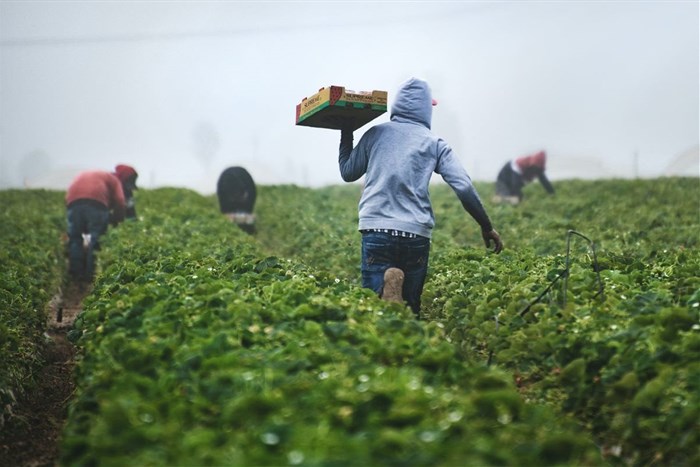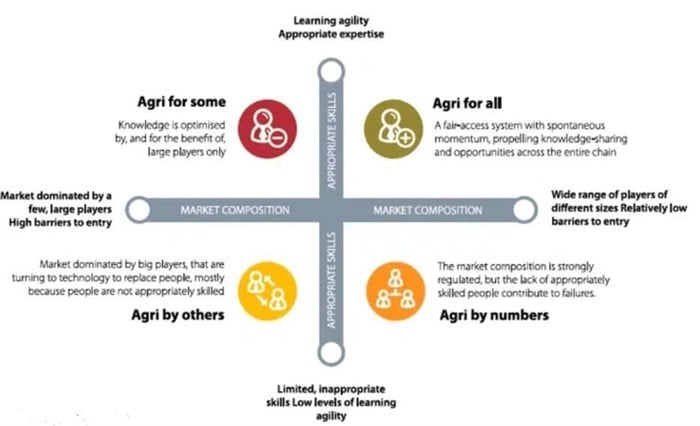
Top stories






More news

Marketing & Media
Ads are coming to AI. Does that really have to be such a bad thing?















Theo Boshoff, CEO of Agbiz, opened the launch with a short overview of why the research needed to be done. He said in order for the agri industry to remain competitive, the industry must be able to adapt to the latest technology and the skills that will be needed in the future.
He also highlighted the fact that the labour force in the agri industry is resilient and even remained relatively stable during the Covid-19 pandemic and ensuing lockdowns. Therefore, the future of the agri labour force must be equipped to remain equally resilient in future.
Prof André Roux from the IFR explained the methodology behind the research that reveals four scenarios of what the agricultural employment environment could look like in 2035. These scenarios were determined with the help of various stakeholders. The first step was to confirm why this research needed to be done. This was done by hosting workshops, and it was determined that the purpose of the research was to help stimulate job creation in agri in the future.
Stakeholders then assisted the researchers in identifying the forces that drive employment in the sector – for example, economics, politics and technology. This list of drivers of change were then grouped into two groups namely key certainties and key uncertainties. The scenarios were then constructed around the two most important key uncertainties, namely ‘appropriate skills and learning agility’, as well as ‘the composition and structure of the market’.
Doris Viljoen, director of IFR, sketched scenarios about how the future of work in the agri industry could look in 2035. These scenarios are summarised below, but access the full report here for more information on the scenarios and the study.

1. Agri for some: In this scenario, the market structure is polarised. There are a few smaller players in the agri industry and larger players dominate. In addition, there are quite high levels of skills agility, but knowledge transfer is mostly taking place between established firms, and they use it to their own advantage to become even more powerful. There are very few job opportunities.
2. Agri by others: The market in this scenario is highly polarised and dominated by large players, but there are low levels of agility in learning new skills. Large international firms are making inroads in the sector. Most jobseekers do not have the required skills and skills agility within the sector is low, mostly because of low levels of knowledge sharing among market players. Large local firms did not prioritise knowledge creation to the same extent as international firms. There are little to no new job opportunities for the local labour force.
3. Agri by numbers: In this scenario, regulatory intervention led to the establishment and inclusion of large numbers of small and medium-sized enterprises (SMEs) in the agri value chain. However, SMEs end up having a short lifespan; they are established as a result of the regulatory interventions, but struggle to survive because accessing and retaining people with appropriate skills are near impossible.
4. Agri for all: In the final scenario, there is successful development of additional production capacity. There is a rich market structure – one where there is a well-balanced mix of larger and smaller players. The industry has the appropriate skills and the learning environment is agile. There is expansion of the local agri supply chain and job creation is flourishing.
Viljoen ended her talk by elaborating on what exactly these appropriate skills are. She said that the skills need for the future of work in the agri industry is a mixed bag. In short, the skills needed for a healthy agri industry consists of soft skills, natural science, systems thinking, technology integration and data management.

AgriOrbit is a product of Centurion-based agricultural magazine publisher Plaas Media. Plaas Media is an independent agricultural media house. It is the only South African agricultural media house to offer a true 360-degree media offering to role-players in agriculture. Its entire portfolio is based on sound content of a scientific and semi-scientific nature.
Go to: http://agriorbit.com/